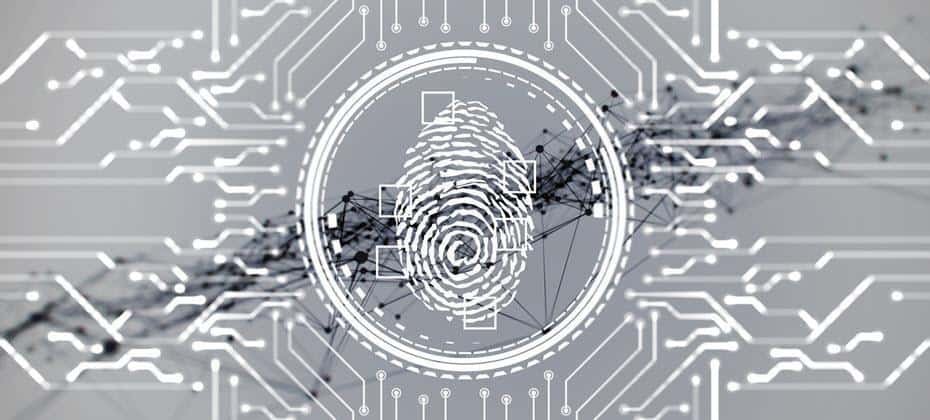"On the Internet, no one knows you are a dog", The New York Times reported at one point θέλοντας να δείξει το πνεύμα της ιδιωτικότητας και της ανωνυμίας μας τις πρώτες μέρες του Διαδικτύου. Παρόλο που η ανωνυμία εξακολουθεί να είναι ένα καυτό θέμα στον online κόσμο, οι καιροί έχουν αλλάξει, μαζί με το Internet. Με την άνοδο των online Τραπεζών, των κοινωνικών δικτύων, του ηλεκτρονικού εμπορίου και υπηρεσιών peer-to-peer, μια επαληθευμένη ψηφιακή ID card it is a critical component to the success of any digital platform.

Banking is one of the areas where the ability to verify a person's identity in a secure manner is a prerequisite for accessing essential services. In addition to accessing banking digital services, most have verified their identity through different services such as Google services, Facebook, and many others. Two-factor authentication or biometric identification often depends on your mobile phone. Of course, no one doubts the convenience of the case that gives easy and quick access to any application, or service, simply by allowing Facebook to share and sell not only your data but also your digital identity. However, your digital identity is more than just login credentials. Your name and password, or whatever other biometric you use, is the only authentication that connects you to your digital self.
Your digital identity consists of thousands of pieces of data that form a profile of who you are and what your preferences are. Today, your digital identity is scattered all over the internet, where Facebook owns our social identity, online bedspread they have data that shows what we like to shop for, credit bureaus own our credit rating, Google has known what we've been doing since the dawn of the Internet, your bank has our payment history, etc, etc.
So if we analyze in detail all of the above we can easily predict some future behavior and get income from it. Of course, the person who has the data can also earn income, without even having to deal with it analysis.

In today's Internet, not only do we not own our data, but our fragmented digital identity is everywhere, which can become very dangerous. For example, fraudsters have started creating digital identities to sign up for digital services.
This way they can apply for loans. Even though the initial application is rejected, a credit file is automatically created, thus creating a digital footprint for a person who does not exist. So imagine that with approx 10 million new loan application files created in the US each year, fake identities can be very difficult to detect.
Over time, these identities gain access to credit, and the bank losses due to these scams are estimated at around $ 1 billion to $ 2 billion a year. The scandal with her Cambridge Analytica is a very notable example (see it The Great Hack), has shown us that our privacy has gone awry, but also that our data collection can become disastrous.
The blockchain is often suggested to meet all the needs of our digital identity, something that has caught the attention of experts such as Mark Zuckerberg who sees it as an opportunity to earn even more.
With the upcoming release of Facebook digital currency, (Pound), the company will be able to further strengthen its position as a leading provider of a global digital identity. Many think there won't be a problem since everything will be encrypted, but a decentralized identity associated with the upcoming Libra digital currency will be the most interesting aspect of Facebook's plans. In its "fine" print documentation of the upcoming cryptocurrency states:
An additional goal of the association is to develop and promote an open identity model. We believe that decentralized and portable digital identity is a prerequisite for economic integration and competition.
A unified and verified digital identity would be beneficial for both users and digital service providers. However, allowing Facebook or the Libra Association to be the custodian of our unified digital identity is like putting the wolf in charge of the sheep.

Είναι δύσκολο να φανταστούμε ένα μέλλον ψηφιακής ταυτότητας στο Internet χωρίς να υπάρχει κάποιου είδους θεματοφύλακας που θα διατηρεί τα όρια και την τάξη μεταξύ του φυσικού και του ψηφιακού μας εαυτού, διασφαλίζοντας ότι δεν χρησιμοποιούνται δεδομένα χωρίς τη συναίνεσή μας. Θα πρέπει να παρακολουθεί και να καταγράφει κάθε κακόβουλη συμπεριφορά, αλλά και παρέχει υποστήριξη σε περίπτωση infringements.
Do you trust Facebook, or maybe Google?
One thing is for sure, such a solution should be based on trust and should also provide the end user with all his personal data, if requested, something similar to his data portability GDPR.
Our digital identity already exists on the Internet, so no one can stop it. Just like you can't stop data breaches no matter how hard you try. Regardless of the technology or appointed custodian we seek to solve this issue, our identities should belong to us. To us and not to a company or consortium of companies seeking to exploit our data for their own profit.



